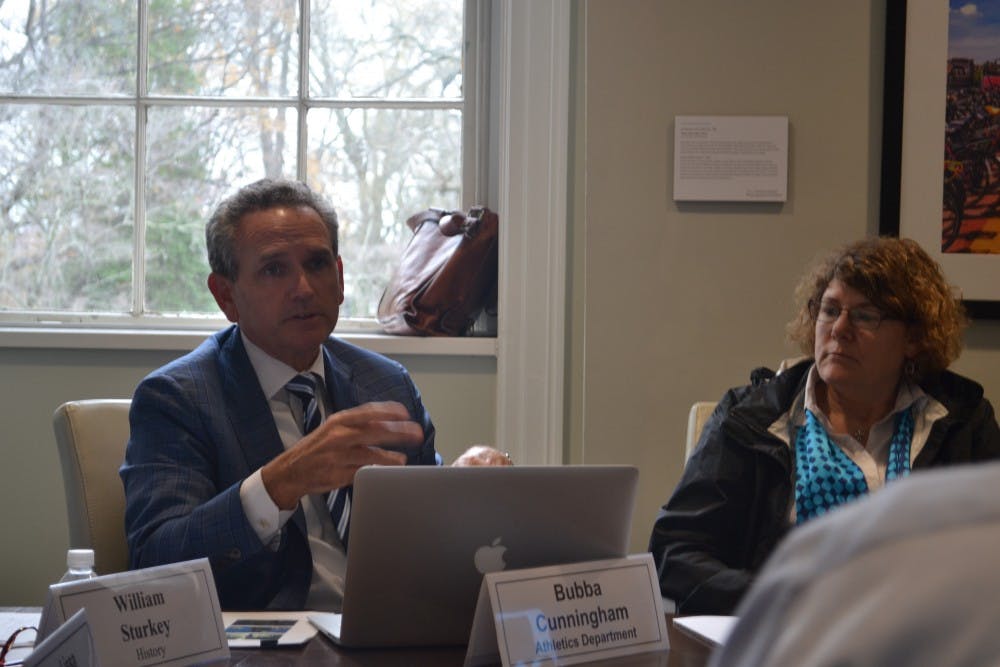Members of the Faculty Athletics Committee met Thursday to discuss changes being made to the approved absence protocol for student athletes, the concerns of UNC’s academic outcome gaps for Black student athletes and California’s new law allowing student athletes to form endorsement deals and hire agents.
University Approved Absences
Debbi Clarke, consultant to the Provost, gave an update on the revised University Approved Absence Policy. The revision includes creating a central office for University approved absences.
Committee member and professor Aimee McHale had concerns with the new policy regarding its removal of travel letters that student athletes typically deliver to faculty.
“I understand one of the reasons for getting rid of the travel letters is the angst that it causes the student athletes to have to give their travel letter to the faculty members,” McHale said. “But it doesn’t obviate the actual having a conversation about, ‘How I am going to make up work.'"
Clarke addressed concerns by saying the process does not exist yet for student athletes, but the interaction will still have to happen.
“When they have an approved absence, they have to coordinate with a faculty member regardless of the reason of the approved absence," Clarke said. "It is just up to the student to say ‘I have a religious observance, I have an NCAA competition or I’m not going to say why, I mean I just have an approved absence how can I work with you to make up that assessment,’ so the conversation still has to happen but now it’s up to the student to decide whether or not they want to disclose."
Academic outcome gap for Black student athletes
Erika Wilson, chairperson in public policy and director of clinical programs at the UNC School Of Law, is a member on the committee.




